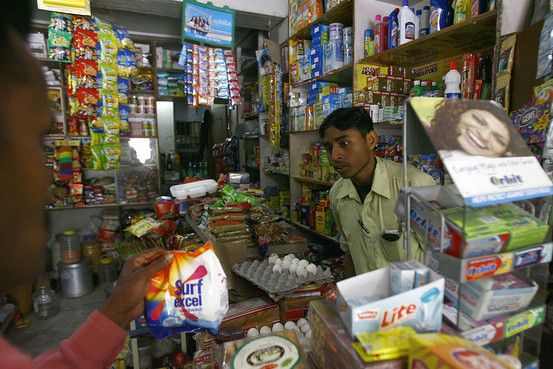
69% of businesses in Mumbai and Pune impacted by note ban, 63% still support move


Representational Image. Courtesy: Knowledge Tree
69 percent of businessmen in the country’s financial capital Mumbai and neighbouring manufacturing hub Pune have been impacted by the demonetisation of high value currency, a new report by SBI research has said.
The Narendra Modi government had announced the decision to demonetize Rs 500 and Rs 1000 notes on November 8 in a bid to curb corruption and black money, a move that had received its fair share of support and criticism.
The findings are based on a survey conducted in Mumbai and Pune among different formal and informal business groups to ascertain the effects of demonetisation on their daily business and whether it resulted in an increase in digital payments.
The survey, reportedly conducted between December 30 and January 3, reveals that almost 69 percent of the respondents were impacted. Despite that, around 63 percent of respondents still support the move.
A total of 175 responses were recorded and analysed, of which 40 percent respondents were from premier business locations of Mumbai and the remaining 60 percent were from Pune and nearby areas.
According to most, the lack of supply of lower denomination notes resulted in more chaos. However, the prevalence of digital mode of payments in chemist shops and automobile stores possibly resulted in only marginal impact on their sales, says the survey.
It said the construction sector and the informal roadside vendors seem to be the most hit, with 55 percent and 71 percent respondents saying their business came down by over 50 percent.
Within the textile sector, shopkeepers dealing with retail segment have been more impacted than those in the wholesale segment.
Vendors whose sales are correlated to the wedding season, along with those in the gems and jewellery sector, have also seen a decline in sales.
As for shift towards digital payments, around 41 percent sellers already had PoS machines available even before demonetisation, but their usage has seen an increase only after note ban.
Nearly 15 percent moved to electronic payments, such as m-wallets, PoS in the subsequent weeks. As a result, around Rs 25,000 crore of cash-based transactions have moved to digital in the last 2 months.
The number could have been even higher because the behavioural shift has not happened yet and many merchants still prefer cash transactions when the amount is not large, the report said. Some are also facing connectivity issue with their PoS machines.
But all in all, this is a good beginning. There is still some resistance about moving towards cashless payment systems but majority are contemplating shifting as soon as possible, the SBI report said.
The government should build incentives for banks investing in creation of card acceptance infrastructure by deploying PoS terminals and incentivise the onboarding of new merchants on digital platforms by a more targeted approach, it said.
The report also suggested that large merchants could be charged to cross subsidise the small merchants to make it a sustainable model, else new merchants would need to be convinced about the uncertainty beyond March 2017, the report concluded.












